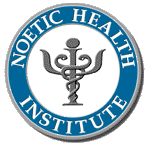 |
Noetic Health Institute |
|
|
The Medical Ethics of Caring Introduction As a 21st century health care professional, some of your most challenging questions are not medical, but philosophical. For example, how do you allocate finite resources when human life is considered infinitely valuable? Unfortunately, there is no rule book that can make these decisions for you, but the responsibility is still in your hands. Ethics is not about formulating complex rules. It is about anticipating possible outcomes and choosing the one that is best for all concerned. By shifting the focus from rules to outcomes, ethics becomes an arena for which you are much better trained and prepared. Who Should Attend Physicians, nurses, social workers, psychotherapists, administrators, and anyone responsible for making ethical decisions in health care. Learning Objectives As a participant, you will come to understand:
Seminar Formats Note: Fees represent our charges to the sponsoring organization. The number of students, and any tuition fees charged to the students, are at the sponsoring organization's discretion. One-hour
Keynote/Lecture Continuing education credit: one
contact hour. Three-hour Seminar Continuing education credit: three
contact hours. Six-hour (One-day) Seminar Best for audiences that want more hands-on knowledge and can devote a full day to it. The first session is lecture-discussion, with extensive audience interaction throughout. The second is devoted primarily to demonstrating therapeutic techniques.
Continuing education credit: six contact hours.
Printable PDF Versions of This Text To download a printable, low resolution, PDF version of this text, click: To download a printable high resolution, PDF version of this text click on the hyperlink below. This is a large file (about 55 MB). We suggest using it only if you have a high speed Internet connection or sufficient download time.
Continuing Education Provider Approved by the: California Board of Behavioral Sciences, Provider #2388 for 1, 3, or 6 Contact Hours, depending on seminar format. (May also be provided under a sponsoring organization's provider number.) |